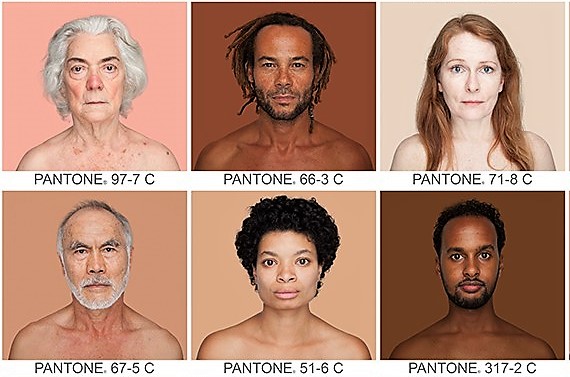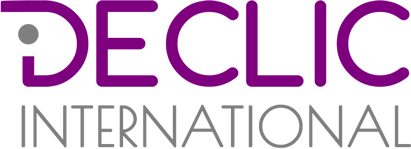3 Facts and 4 Myths About Ethnic Diversity (part 2 of 4)

This is the second part of a four-part blog series that explores ethnic diversity: key concepts, facts, myths, barriers and enablers. My intention is to equip you with the right knowledge and tools to succeed in building and engaging an ethnically diverse team, without alienating the ethnic majority. Another series will follow specifically about religious diversity.
Today, we’re focusing on key facts and myths about ethnic diversity.
Three facts about ethnic diversity
1- Societies are more and more multicultural
The proportion of migrants as a share of the national population in high-income countries rose from nine percent to thirteen percent from 2000 to 2015. Today, minorities makeup 37 percent of the United States population and will climb to 57 percent by 2060.[i] Thirteen percent of UK’s working age population and twenty percent of young people in primary and secondary school are from ethnic minorities.[ii] There are usually more babies born in ethnic minority families, so even if we stopped migration today, ethnic minority groups, will continue to grow.
2- Racial discrimination is pervasive
For instance, a study carried out in the UK showed that to get a call back for an interview, applicants with ethnic minority sounding names must send nearly two times more applications than applicants with white sounding names with the same qualifications.[iii] In France, a study showed that applicants with Arabic sounding names receive three times less callbacks than applicants with identical CVs and typically French sounding names. The gap doubles for management positions.[iv] In Austria, a study showed that people with typical Austrian names are invited to job interviews twice as much as people with Nigerian names with the same level of qualification.[v] Similar studies in other countries show similar results. That’s what some researchers call the “ethnic penalty.”
3- Ethnic minorities are under-represented in management and leadership positions
For instance, one in eight British is from ethnic minorities, yet only one in sixteen hold management positions.[vi]
Four myths about ethnic diversity
1- Immigrants are less qualified
Immigrants tend to be underemployed. For instance, in the US, immigrants with university degrees from their native countries often work as cab drivers, cleaners or security guards.[vii] While only sixteen percent of EU migrants come to England with no qualifications, as many as 42 percent have low-skilled jobs.[viii] Insufficient language skills only partially explains this situation.
2- Young people are less racial biased
The compiled results of Harvard’s Implicit Association Test showed that, contrary to public belief, young people show more racial bias than any other age group.[ix] A study in France showed that ethnic bias in young people is just as strong as in people from other age bands.[x]
3- Ethnic minority people are not biased
The compiled results of Harvard’s Implicit Association Test showed that even if whites are more biased than non-whites (72 percent vs. 60 percent), most people have racial bias.[xi]
4- Some industries don’t need to improve ethnic diversity
Some industries that employ low qualified labour, such as the construction industry, tend to have a higher concentration of people from ethnic minorities. However, when you look closely, you’ll find an “ethnic division” of labour, with a hierarchy of jobs that can be done by certain ethnicities, and little social mobility, with very few people from ethnic minorities at management positions. Ethnic diversity across the board is extremely rare. I was once in a factory in Belgium; when I asked the local leadership team if they were diverse, they proudly told me that sixty percent of the factory were immigrants. When I asked which jobs they had, I found out that there was not a single immigrant occupying a management position.
PS: this article’s cover image is taken from the project Humanae by the photographer Angélica Dass, a Brazilian artist who’s using photography to show that humanity is far more diverse than just black and white.
***
Thanks for taking the time to read this post. Let me know what you think about it in the comments below.
This is an excerpt of my book “Succeed as an inclusive leader – Winning leadership habits in a diverse world”.
Looking for effective ways to accelerate your progress towards inclusion? Register for the best train the trainer training on inclusive leadership. Click HERE to find out more about it.
ABOUT THE AUTHOR
THAIS COMPOINT is a top global specialist in inclusive leadership. Her achievements have been acknowledged with 15 awards world-wide, including the prestigious “2019 Top Global Diversity and Inclusion Leaders Award”. She’s a speaker, author, facilitator, and consultant with 19 years of experience. Thais spoke at three TEDx events, is the author of “Succeed as an inclusive leader”, the creator of the Inclusive Leadership Global Conference, and the host of the podcast “The Inclusiveship Show”. Thais is also the founder and CEO of Déclic International, a global boutique consultancy that she founded after leading the inclusion & diversity strategies of three Fortune 500 companies: Vinci, Coca-Cola Enterprises and Cisco. Déclic has served clients in more than 10 industries, including organisations such as Barclays, Pfizer, Allianz and Accor.
References
[i] Kira Hudson Banks, How Managers Can Promote Healthy Discussions About Race, Harvard Business Review, January 2016.
[ii] Race at Work 2015, BITC, November 2015.
[iii] Barney Thompson, Black and ethnic names have less chance of making shortlist, Financial Times, May 2016.
[iv] http://www.algerie-dz.com/forums/archive/index.php/t-34368.html.
[v] Shadow Report 2014-15 on Afrophobia in Europe: Key findings, ENAR, 2016.
[vi] Fleur Bothwick, How important is the terminology we use when talking about ethnicity? November 2016.
[vii] Ibrahim Hirsi, Why do many highly educated immigrants face underemployment? Minn Post, October 2015.
[viii] https://www.euractiv.com/section/socialeuropejobs/
opinion/areeumigrantsoverqualifiedforthejobstheydo/.
[ix] http://race.bitc.org.uk/all-resources/infographics.
[x] Les stéréotypes sur les origines, IMS, December 2013.
[xi] http://race.bitc.org.uk/all-resources/infographics.



